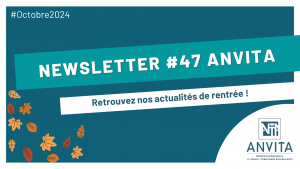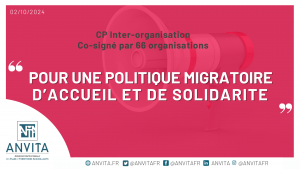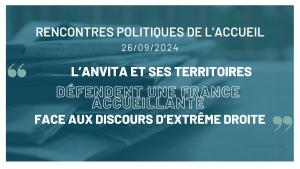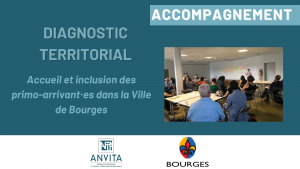ANVITA participated in the "ORMI Project" working group
The ORMI project that Forum Réfugiés - Cosi wishes to undertake aims to support civil society in Guinea and France in the responses it provides to the migration of young Guineans.
A working group bringing together various actors (departments, cities, associations, local mission, chamber of trades and crafts, etc.) was therefore organised on 27 January in order to discuss the care of young Guinean migrants in France, both minors and young adults. The aim was to promote the exchange of practices and the development of a shared reflection on the methods of support for these young people.
In France, the departments are responsible for the reception, shelter, assessment and support of Unaccompanied Minors (UAMs). In conjunction with the "Aide Sociale à l'Enfance" (child welfare) services, they are responsible for setting up the Contrat Jeunes Majeurs (CJM). Officers working in the Unaccompanied Minors (UAM) and Child Welfare (CAS) services in the Haute Garonne, Loire-Atlantique and Bas-Rhin "departments" were able to share their experiences during this discussion. In particular, they highlighted the significant presence of UFMs of Guinean origin on their territory and the difficulties encountered in regularising them. Indeed, since 2015, the migration of young Guineans to France has accelerated. Although difficult to quantify, the phenomenon can be seen in the 360% increase in asylum applications from people of Guinean nationality in five years, as well as in the significant increase in the number of Guinean UFMs taken into care by social welfare actors. Since 2017, Guineans have been the leading nationality of Unaccompanied Minors received in France.
Focus on the working group
A participatory working group enabled the various difficulties encountered in the reception and care of young Guinean migrants to emerge, and to look at inspiring practices. The main difficulties mentioned by the participants :
-
Obtaining identity papers (complex reconstitution of civil status because it is considered unreliable, difficult access to supplementary judgments and extracts from civil status registers, little validation of documents by the French authorities, frequent suspensions of the issue of biometric passports, etc)
-
The precariousness of the socio-economic level of young Guinean migrants (very unequal mastery of the French language, increasingly low levels of schooling which hinder access to training)
-
Shelter (saturation of emergency accommodation and other temporary reception facilities)
-
Health care (difficult access to care for psychological disorders, traumatic migration routes, etc.)
-
The dialogue around immigration
Good practices identified by the participants:
-
Setting up internal educational bodies
-
Identifying partners to build pathways
-
Support and assistance with appeal
- Good preparation for the OFRA interview
Focus on the working group specialising in the social and economic integration prospects of young Guinean migrants
Among the difficulties most mentioned :
-
Very long delays in regularisation by the Prefecture, leading to complex administrative situations
-
Access to housing and language learning
-
La difficulté d’accès à la formation donnant lieu à des difficultés de régularisation
- Difficulty in accessing training, leading to difficulties in regularisation
- Coordination between the ASE services and asylum organisations
However, in parallel, many practices were mentioned
Inspiring concrete projects:
-
OACAS system
-
Use of Educational and Vocational Centres (CEP)
-
The "CAP sans frontières" project run by the 3aMiE association in Grenoble
-
The creation of an economic commission on access to work for exiled persons in the city of Die
- The development of municipal job offers for exiled people in the town of St-Pierre d'Entremont
Strengthen collaboration and partnerships:
-
Access to work-linked training through links with the Chamber of Trades and Crafts (CMA), struggling businesses in the local economic area, and the Employers' Groups for Integration and Qualification (GEIQ)
-
Partnership between National Education, the Departmental Services Directorate of the National Education and the CFAs
-
Coordination between ASE services, local missions and Housing First policies
-
Collaboration in the departments between international cooperation services working with Guinea and child welfare services
-
Promoting citizen reception
Setting up workshops:
- Raising awareness of the world of work (transmission of company codes and practices, information on labour law, etc.)
-
Setting up sociolinguistic workshops





